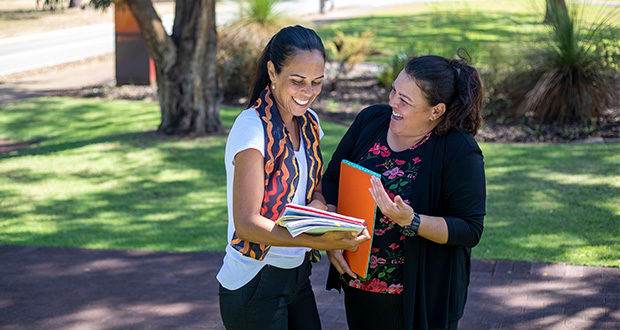Building small habits can help teachers’ to balance their mental health and workloads through the school year, according to a well-being expert.
This week, four million students returned back to classrooms nationwide to begin Term 1.
Former teacher and wellbeing coach Daniela Falecki said while this year will bring some much-needed normalcy for students and staff, a wave of changes is expected to occur.
“Schools are complicated and dynamic places that change quickly and when there's too much change, it can be overwhelming,” Falecki told Education Review.
"Teachers are always enthusiastic and dynamic at the beginning of a new school year, ready to tackle anything, but that energy can quickly fizzle out and stress arise."
A 2022 NSW state employee survey said that only 32 per cent of public school teachers were able to maintain their stress levels while 67 per cent reported burnout.
Falecki joined Education Review to offer simple actions for teachers to use through 2023.
Acknowledging various actors playing on teachers' wellbeing
According to Falecki, the first step to having healthy well-being is to accept that not everything is under our control.
“Having a well-rounded well-being is hard, teachers need to understand that it's not only their actions that mould their mental health,” she said.
"No amount of meditation, exercise or coffee cart are going to change the fact that there are so many things in education that we can't control."
Safe Work Australia said organisations are as much responsible for their employees' well-being as the employee themselves.
Organisations must ‘eliminate’ or ‘minimise’ the risk of psychological injuries caused by job demand, lack of role clarity, bullying, poor environment and issue around management, according to the employee regulator.
In NSW, about 20 per cent of public school teachers said they have enough support to do their job well.
Falecki describes organisational well-being in three categories that influence each other: ‘me’, ‘we’ and ‘us’.
- Me: which represents what an individual can do to improve their well-being.
- We: the relationship between colleagues and students. These relationships can either provide support or make teachers' live impossible.
- Us: which represents the system and government on which teachers have no impact.
She said teachers should remember there are aspects of school life they cannot change.
“They need to focus their energy on what is accessible and pick their battles," Falecki said.
Building small habits
Over the years, multiple studies have shown that building small and practical habits daily leads to positive mental health.
Falecki said teachers could try breathing exercises while brushing their teeth, sipping on a water bottle during meetings, or journaling before going to bed.
"These habits shouldn't be longer than five minutes," she said.
"It is important teachers actually put these minutes in action, not only setting a goal about it in a to-do list."
In addition, at the end of the day, teachers should focus on restoring their energy by taking some time for themselves and doing activities that bring them joy.
While every teacher will need to find what will be beneficial for their own mental health, Falecki said they can try a walk in nature, swimming, listening to music, painting, and drawing.
"These will help teachers restore their energy and process their emotions."
"What educators need is to create a well-being action plan for themselves that relates to when they are going to do meditation, exercise, diet, and sleep," she said.
She said teachers will need to ensure they will plan activities in their schedule to avoid "missing the time to do it".
While she acknowledges the hardship of being a teacher, Falecki said educators are responsible for prioritising their wellbeing.
"Self-care is about being self-responsible, and we need to be responsible for the things that we can control: how we think, feel, and respond.
"We have a responsibility to ourselves and we have a responsibility to our students to support our own wellbeing.
"If we don't, we rob our students of our best selves and we rob students of connecting with us and of their own best learning."
Do you have an idea for a story?Email [email protected]
 Education Review The latest in education news
Education Review The latest in education news
